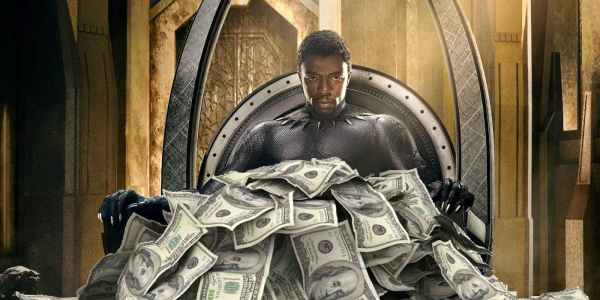
Twice As Good: Black Panther Exceeds Expectations and Makes Its Mark on a Changing Industry
“What happens now determines what happens to the rest of the world.”
From Shuri’s quick quips to M’Baku’s show-stealing performance, Black Panther is full of quotable moments. It’s this line from the titular character, however, that encompasses the scrutiny that has surrounded the film since it was first announced in 2014.
There’s a saying within black households passed from my parents’ generation onto mine: “You have to be twice as good to get half as far.” This sentiment also bleeds into black art. Arguments against the push for more diverse representation in the media often revolve around the quality of diverse work – “Good art gets praise and attention, it’s not our fault that what is lauded as good art always happens to lack representation for marginalized groups.” So, while many of us were excited by the idea of a black-led Marvel Cinematic Universe (MCU) film, we also had our trepidations.
A Black Panther film couldn’t just be “okay” like Iron Man 2 or Thor: The Dark World. Because black films are still seen as a risk in the industry, “okay” would be the equivalent of a failure. Black Panther couldn’t be anything less than excellent, and with Marvel hitting their stride in the genre with films like Captain America: Civil War and Spider-Man: Homecoming, the bar was set almost impossibly high for what was to be the eighteenth film in the MCU.

NOT THE FIRST, BUT IN THIS CLIMATE, THE MOST IMPORTANT
T’Challa isn’t the first black superhero to grace our screens. He’s not even the first black hero of the MCU. Following cult-classics like the Blade trilogy featuring Wesley Snipes and the more recent iteration of Luke Cage by Mike Colter, Chadwick Boseman’s Black Panther adds to an already rich legacy, but the inability to claim the title of “first” doesn’t lessen this film’s potential impact on the genre or the industry.
With the rise of movements like Black Lives Matter and #OscarsSoWhite, and especially considering sentiments like those shared by President Trump, who considers African nations “shithole” countries, Black Panther comes at a time where films that celebrate Pan-African culture and explore the African-American diasporic experience are absolutely vital. It’s no question that this sociopolitical climate in-part incited the fever pitch that surrounded the film online since the cast announcements in 2016.
Before the film even screened for the general public, it became the most tweeted about movie of 2018. It amassed more than five million tweets surrounding the movie and inspired campaigns like the #BlackPantherChallenge, which raised money toward buying tickets for children from underprivileged communities across the US and Canada so they could see the film on opening weekend. Too often it seems like only the films that centre around black struggle, like Selma or Twelve Years a Slave, are lauded as Great Black Films, and so many were eager to help children see themselves in a film that celebrates blackness and shows a future where they can be tech geniuses like Shuri, or strong leaders like T’Challa and M’Baku.
One just has to take a cursory glance at the thousands of #WhatBlackPantherMeansToMe tweets to see just how much this film has impacted both adults and children since its release. No, Black Panther isn’t the first “black superhero movie,” but it is the first to be helmed by an African-American director and supported by a primarily black cast. It’s also the first to receive such substantial financial support from a major studio.
Many are hopeful that the monetary faith that Disney put into Black Panther will mark a change in Hollywood’s attitude to black-led films.

THE NUMBERS DON’T LIE
Black movies have always been marketed as niche entertainment, rather than part of mainstream media. Tyler Perry made a fortune because he tapped into the underrepresented market of African-American moviegoers, and though the Madea franchise cannot be considered anything less than a success, it is still considered “black entertainment.”
But more and more people have begun to notice that these “niche” films bring in the big money at the box office. Get Out and Girls Trip both received acclaim in 2017 not only because they were excellent films within their respective genres, but also because they both made way over their estimated box office earnings.
As I write this, Black Panther is set to have the fifth-largest box office opening weekend in history and I’m confident that it will surpass even those projected earnings. These numbers show that not only do African-Americans turn out when they receive good, needed representation in film – as they made up an estimated forty per cent of moviegoers this weekend – but that many people outside of the black community are interested in these films too. A resounding financial success from Black Panther could be the next step in destigmatizing black films as being too insular to appeal to white audiences.

If you didn’t see Black Panther this weekend, you missed out on a great film that not only boasts dazzling visuals and classic Marvel humour, but reimagines African tradition in a country absent of the effects of colonization and what it means to be African-American in such a world, making it one of the timeliest films of the decade.
But considering that it will probably hang around in theatres for a while yet, you’ve still got the chance to get out and show support to a film that’s making big moves in the industry, even if it’s “just another superhero movie.”





